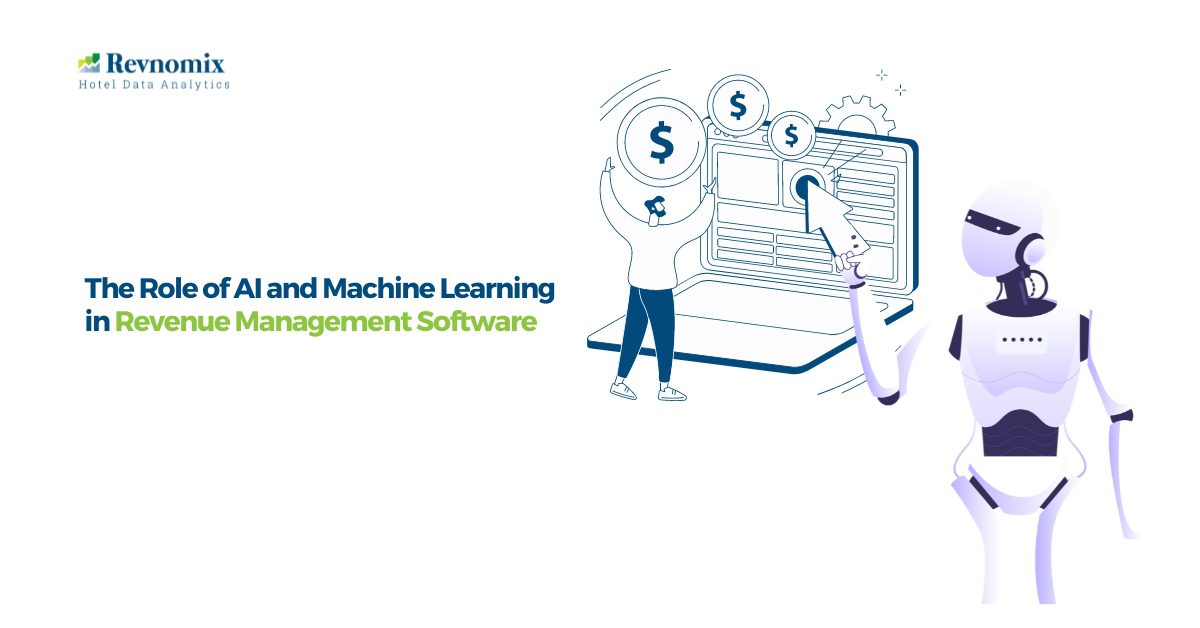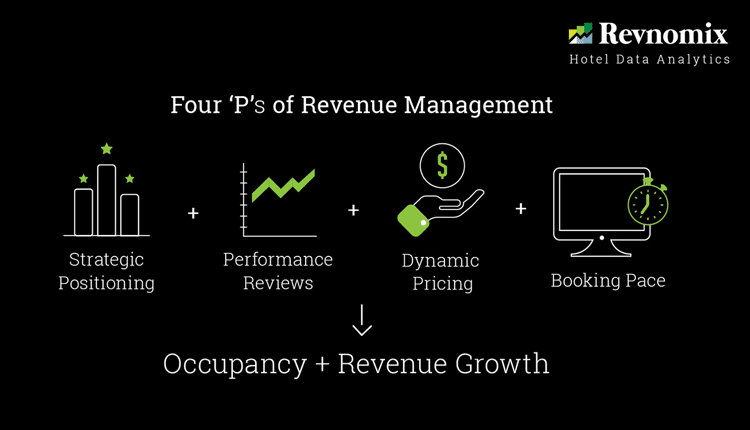In today’s fast-paced business environment, companies must leverage cutting-edge technologies to stay competitive and maximize profitability. One such technology that has significantly transformed how businesses operate is revenue management software (RMS). At the forefront of this transformation are artificial intelligence (AI) and machine learning (ML), which are revolutionizing the capabilities of RMS, making them more intelligent, efficient, and responsive to market dynamics.
Understanding Revenue Management Software
Revenue management is a strategic approach that focuses on predicting consumer behavior, optimizing product availability, and pricing to maximize revenue growth. Traditionally used in the hospitality and airline industries, revenue management principles are now being adopted by various sectors such as retail, media, and healthcare.
RevnomixRMS is a powerful revenue management software that automates these complex processes, enabling businesses to make data-driven decisions with greater accuracy and speed. By leveraging advanced algorithms and real-time data analysis, RevnomixRMS helps companies forecast demand, adjust pricing dynamically, and optimize inventory management. This results in improved profitability and competitive advantage.
With RevnomixRMS, businesses can efficiently manage their revenue strategies, reducing manual effort and minimizing errors. The software’s user-friendly interface and robust analytics tools provide valuable insights, allowing companies to respond swiftly to market changes and consumer trends. By implementing RevnomixRMS, businesses can enhance their operational efficiency and achieve sustainable revenue growth.
The Advent of AI and Machine Learning
AI and machine learning have brought a paradigm shift in how revenue management software operates. By incorporating these advanced technologies, RMS can analyze vast amounts of data, identify patterns, and generate insights that were previously unattainable. Here’s how AI and ML are enhancing RMS:
1. Enhanced Data Processing and Analysis
AI-powered Revenue Management Systems (RMS) have the capability to process and analyze large datasets from various sources, including historical sales data, market trends, and competitor pricing. Utilizing machine learning algorithms, these systems can sift through vast amounts of information to identify patterns and correlations that may elude human analysts. This advanced data analysis allows businesses to make more informed decisions, leading to optimized pricing strategies and improved revenue management.
Key Points
1. AI-powered RMS processes and analyzes large datasets from multiple sources.
2. Sources include historical sales data, market trends, and competitor pricing.
3. Machine learning algorithms identify patterns and correlations that human analysts might miss.
4. Comprehensive data analysis enables more informed business decisions.
5. Results in optimized pricing strategies and improved revenue management.
2. Improved Demand Forecasting
Accurate demand forecasting is crucial for effective revenue management. Traditional forecasting methods often fall short due to their inability to account for various external factors such as market volatility, seasonal trends, and consumer behavior changes. AI and ML algorithms, however, excel at predicting demand by continuously learning from new data. They can adjust forecasts in real-time, ensuring that businesses are always equipped with the most up-to-date information.
3. Dynamic Pricing Optimization
One of the most significant benefits of AI and ML in Revenue Management Systems (RMS) is dynamic pricing optimization. Machine learning models can analyze market conditions, competitor pricing, and customer behavior to recommend optimal prices that maximize revenue and occupancy rates. Additionally, these models can simulate different pricing scenarios, enabling businesses to understand the potential impact of pricing decisions before implementing them.
Key Points
1. Dynamic Pricing Optimization: AI and ML optimize prices dynamically.
2. Data Analysis: Machine learning models analyze market conditions, competitor pricing, and customer behavior.
3. Revenue Maximization: These models recommend optimal prices to maximize revenue and occupancy rates.
4. Scenario Simulation: Models can simulate different pricing scenarios.
5. Informed Decision-Making: Businesses can understand the potential impact of pricing decisions before implementation.
4. Personalization and Customer Segmentation
AI and ML enable RMS to deliver personalized pricing and offers based on individual customer preferences and behavior. By segmenting customers into different groups, businesses can tailor their strategies to target specific segments more effectively. This not only enhances customer satisfaction but also drives higher conversion rates and revenue.
5. Real-Time Decision Making
In today’s dynamic market environment, the ability to make real-time decisions is crucial. AI and ML algorithms can process data and generate insights in real-time, allowing businesses to respond swiftly to changing market conditions. Whether it’s adjusting prices, optimizing inventory, or launching promotional campaigns, AI-driven RMS ensures that businesses are always a step ahead.
6. Automation and Efficiency
AI and machine learning automate many of the labor-intensive tasks involved in revenue management, such as data collection, analysis, and reporting. This not only saves time and resources but also reduces the risk of human error. By automating routine tasks, businesses can focus on strategic decision-making and innovation.
7. Competitive Advantage
Incorporating AI and ML into RMS provides businesses with a competitive edge. By leveraging advanced analytics and real-time insights, companies can anticipate market trends, identify new opportunities, and outmaneuver competitors. This agility and foresight are crucial for maintaining a competitive position in today’s rapidly evolving market landscape.
Case Studies: AI and ML in Action
Several companies have already reaped the benefits of AI and ML in their revenue management strategies. For instance, leading hotel chains have reported significant increases in revenue and occupancy rates by implementing AI-driven RMS. These systems have enabled them to optimize room rates based on real-time demand and competitor pricing, resulting in higher profitability.
Similarly, airlines have used machine learning models to optimize ticket pricing and manage overbooking. By accurately predicting demand and adjusting prices accordingly, airlines have maximized revenue and improved customer satisfaction.
The Future of Revenue Management Software
The integration of AI and machine learning in revenue management software is just the beginning. As these technologies continue to evolve, we can expect even more sophisticated and powerful RMS solutions. Future advancements may include deeper integration with Internet of Things (IoT) devices, enhanced predictive analytics, and more intuitive user interfaces.
Furthermore, as AI and ML algorithms become more advanced, they will be able to handle increasingly complex scenarios and provide more nuanced recommendations. This will enable businesses to navigate the ever-changing market landscape with greater confidence and precision.
Read More – Revenue Management Software vs. Traditional Methods: Why Digital Wins?
Conclusion
AI and machine learning are transforming revenue management software, making it more intelligent, efficient, and responsive to market dynamics. By leveraging these advanced technologies, businesses can enhance their data processing capabilities, improve demand forecasting, optimize pricing strategies, and deliver personalized customer experiences. As AI and ML continue to evolve, they will undoubtedly play an even more significant role in shaping the future of revenue management, providing businesses with the tools they need to stay competitive and drive growth.
At Revnomix, we are at the forefront of this technological revolution, offering cutting-edge RMS solutions that harness the power of AI and machine learning. Contact us today to learn how our innovative software can help you maximize your revenue and achieve your business goals.







